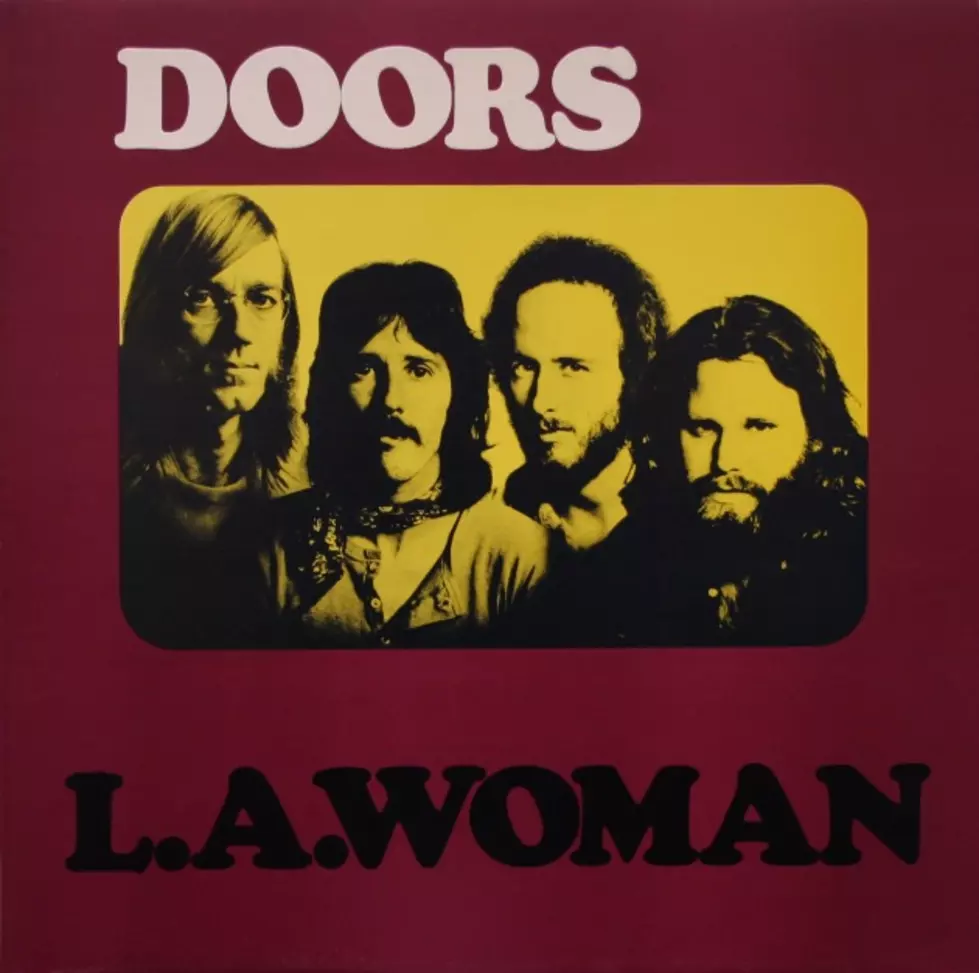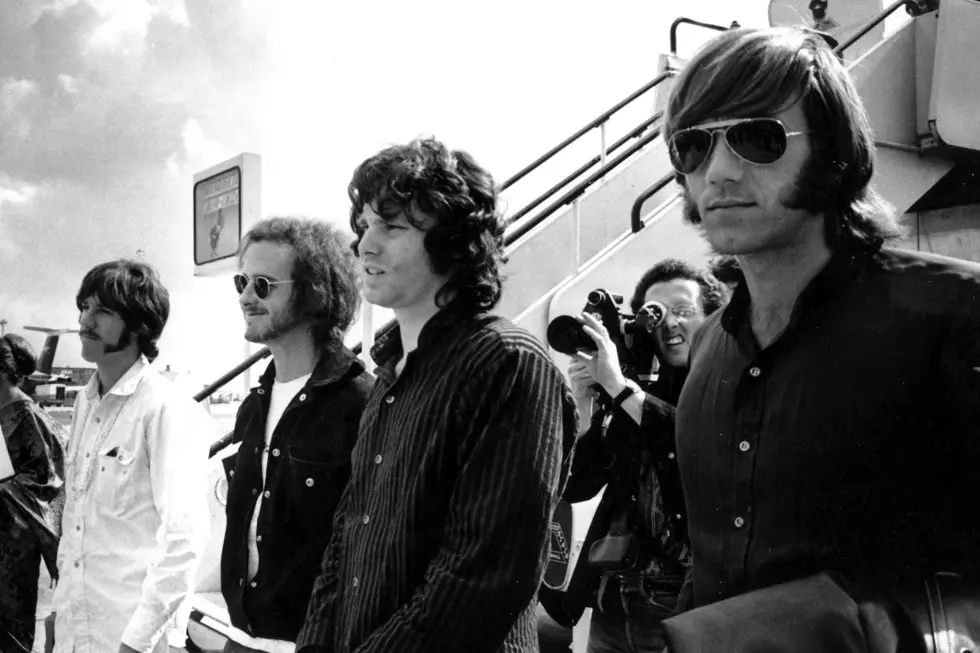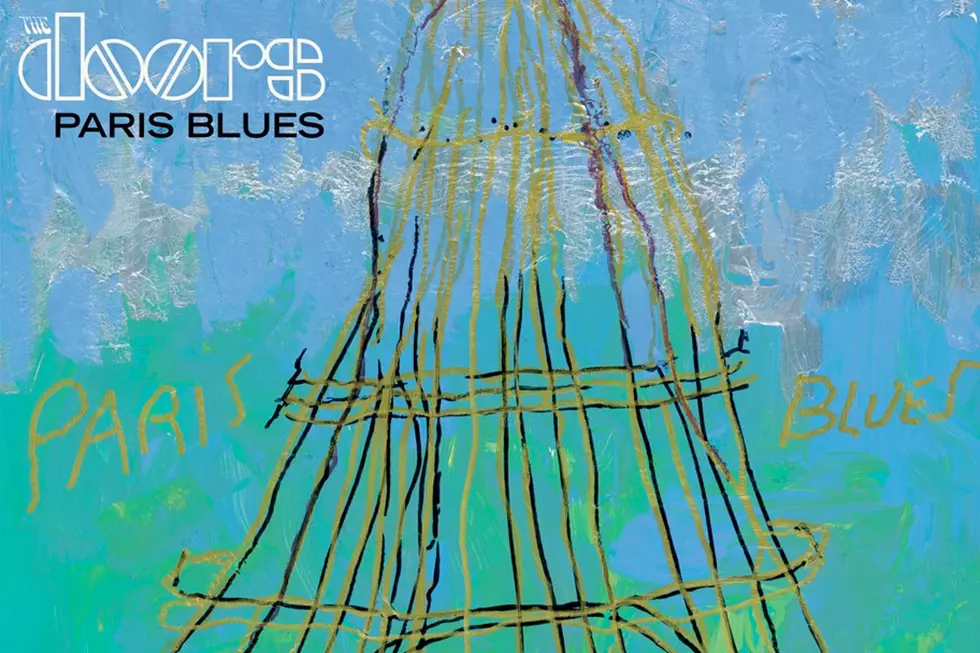
How the Doors Rebounded on Their Last Album With Jim Morrison
The Doors were at an uncertain creative crossroads in late 1970, as their work was increasingly overshadowed by the antics of frontman Jim Morrison.
Their sixth album would be recorded amid legitimate concern regarding their longterm future. Unfortunately, those worst fears would soon be confirmed — but first they managed to rebound with a set of songs that served as a triumphant reminder of the Doors' appeal.
That's not to say that things always went smoothly during sessions for L.A. Woman, which eventually arrived on April 19, 1971. In fact, before they even really got started, the Doors had to deal with the abrupt departure of longtime producer Paul Rothchild, who ended an early listening session by insulting the Doors' musical direction and walking out.
"We were bummed," guitarist Robby Krieger later told Mojo, "because he had done all the other ones and ... it was sort of like he didn't like the music. 'It sounds like cocktail music,' he said about 'Riders on the Storm.' We were going, 'Oh shit, what do we do now?' We'd never been in this position before."
In a separate interview, keyboardist Ray Manzarek remembered "giving Paul a preview and he was bored. We played the songs very badly – with Jim – but there was no chi, no energy,. We didn’t want to be back in [Sunset Sound Recorders], and Paul couldn’t bring us back to life. In that instant, he was right. As soon as he left the room, that’s when L.A. Woman started."
Listen to the Doors' 'L.A. Woman'
Rothchild would argue that he quit "because I’d grown tired of dragging the Doors from one album to another, especially an unwilling Jim, and he had virtually dried up. Two out of three times, Jim would either not want to work, or would go into the studio drunk. He would intentionally disrupt things … never fruitfully. Most of my energies were spent trying to coordinate Jim with the group."
The Doors ended up naming sound engineer Bruce Botnick as their new producer, and his promotion made Rothchild's departure seem like a blessing in disguise. "As great a producer as Paul was, he tended to overproduce, a little bit like Hitler in the studio. Jim might've needed that, but on the other hand, if it had been a little more fun in the studio it might've gotten a little better," Krieger said. "With Paul, everything just took so long and was so drawn out that it would make Jim bored and want to go and drink. By the time it was his turn to sing, he was all messed up."
Botnick admitted that Morrison "did not like authority – which goes back to his father – and Paul through the years had become the General, because of Jim sometimes being out of control – God and master. After a while, Jim rebelled against that, because it wasn't a group effort at that time. It was Paul's show."
L.A. Woman took shape in a rehearsal room that the Doors had converted into a makeshift studio, and bassist Jerry Scheff and guitarist Marc Benno were brought in to round out their sound. The augmented lineup started cutting tracks live in a process that Manzarek looked back on fondly.
"We were going for a much rawer sound – the spontaneous Zen moment. Two weeks, man," he told Mojo. The songs were all together. L.A. Woman just fucking exploded in the recording studio, with Jerry Scheff and Marc Benno. God, did we capture it! We smoked a joint and locked in."
Listen to the Doors' 'Riders on the Storm'
This locking-in process even extended to the band's mercurial frontman, whose growing reputation for bad behavior wasn't a factor during the sessions. "He was punctual, professional, all those boring things," Botnick revealed. "Some sessions even began in the afternoon! The Doors were making the record Jim wanted, rather than what was expected. His notion of the Doors was as a blues band, and not a pop group."
Botnick's thoughts were echoed by Benno, who saw Morrison on a creative high during the making of L.A. Woman. "Morrison was a nice guy who was on a roll. He reminded me of a wild gorilla at the sessions. He had a hand-held microphone and a telephone book full of songs," the guitarist added. "We worked the tunes up on the spot, and did very few takes. ... He cut loose completely while recording, and the result was a very spontaneous album."
According to Manzarek, even session obstacles ended up providing landmark moments on L.A. Woman. The Doors were recording of "Riders on the Storm" when they "had a bit of a problem figuring out the bass part. I sang it to Jerry Scheff, and he said, 'That's really hard to play,' and I said, 'No, no, no – look, it's easy, a little easy triad.' He said, 'Yeah, that's the way it lays out on the keyboard, but watch what I have to do on the bass.' And when he started to play that bass line, man, it was just spooky. That song became itself in the recording studio."
As smoothly as the Doors may have operated during the recording of L.A. Woman, the writing was already on the wall for Morrison, whose slide into ill health continued. Manzarek said his sad fate unfolded on the album cover: "In that photo, you can see the impending demise of Jim Morrison. He was sitting down because he was drunk. A psychic would have known that guy is on the way out. There was a great weight on him. He wasn’t the youthful poet I met on the beach at Venice."
Listen to the Doors' 'Love Her Madly'
Youthful poet or no, Morrison remained a rock star in 1971 – and the Doors were still one of the bigger bands in the industry. L.A. Woman rose to the Top 10 chart placement, and the group would add a pair of Top 20 singles ("Love Her Madly" and "Riders on the Storm") to their tally.
Sadly, they'd also have to say goodbye to Morrison. He left the U.S. for Paris while the LP was still being mixed. But what was supposed to be a temporary leave of absence turned out to be a final farewell: Morrison died on July 3, 1971, bringing one of rock's most tumultuously dynamic careers to a bitter conclusion. The Doors would continue on for a spell, releasing a trio of albums, but they'd effectively been over for some time when the group finally made the split official.
L.A. Woman marked the end of an era, but the late Manzarek never lost his fondness for it. He described this as his favorite of all the band's releases during a later interview with Mojo. "It represents to me a drive across the great American South West. Driving on the freeways and highways through the desert – Arizona or New Mexico – or driving up the coast of California on Highway 1, from L.A to San Francisco. It’s alive, it’s free, it’s young and it’s wild."
Rock's 22 Nastiest Onstage Bandmate Blowups
Jim Morrison is Part of Rock’s Tragic ‘27 Club’
More From Ultimate Classic Rock









